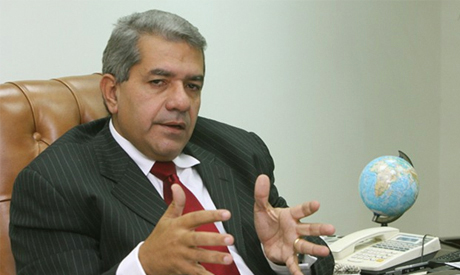
Minister of Finance Amr El-Garhy (Al-Ahram)
Inflation is expected to ease in Egypt as of April after peaking in the first quarter of 2016/17, Egypt’s finance minister Amr El-Garhy said in a televised interview with Bloomberg on Monday.
On Saturday, Egypt's state statistics body CAPMAS announced that the annual headline inflation rose to 29.6 percent in January from 24.3 percent in the previous month and from 10.7 percent in January 2016, hitting its highest level in at least a decade after the country freely floated its currency against the dollar in November.
According to El-Garhy, the high inflation was expected due to the devaluation of the local currency and the economic reforms, “but after [March], we believe [inflation] will start improving, because it is all resulting from high supply prices rather than being demand-driven inflation,” El-Garhy said.
In November, the CBE floated the pound against the dollar and raised key interest rates as part of a set of reforms aiming to revive the country's flagging economy.
In July 2014, Egypt embarked on a fiscal reform programme to curb a growing state budget deficit — now 12.2 percent of the GDP — by cutting subsidies and introducing new taxes, including the value -added tax.
When asked by Bloomberg about growth forecast, the finance minister said that the ministry is sticking to 3.8 to 4 percent for the current fiscal year.
The minister added that equally important is fiscal consolidation by reducing the budget deficit as well as both the overall deficit and the primary deficit, saying that it is a “very important measure that we must put into effect so as to put the economy on the right track.”
El-Garhy also said that interest from foreign investors is already growing, saying that “we have seen it in the equity part [stock market] and the local debt part [bonds], we have seen very strong demand; and we have met many [investors] during the [eurobond] road show.”
“[This is] a very encouraging sign and vote of confidence in the economic reform programme,” the minister said.
The cost of foodstuffs and beverages rose by seven percent in January 2017 compared to December 2016 and 38.6 percent year-on-year.
Egypt's economy has been struggling since the 2011 uprising, with a sharp drop in tourism and foreign investment, two main sources of hard currency for the import-dependent country.
Short link: